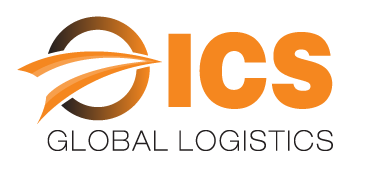Customs clearance is a crucial step in international trade that allows goods to cross borders legally. It involves a series of procedures and documentation to ensure that goods comply with regulations and are safe for import or export. Understanding the customs clearance process is essential for importers and exporters, as it can have a significant impact on the success of their businesses.
In this blog post, we will provide a step-by-step guide to the customs clearance process, including the required documents, regulations, and procedures involved.
Preparing for Customs Clearance
Before goods can be cleared through customs, several preparations must be made. These include gathering the necessary documents, understanding customs regulations and requirements, and hiring a customs broker.
Documents needed for customs clearance may vary depending on the country of import or export and the type of goods being shipped. However, some common documents include commercial invoices, packing lists, bills of lading, and certificates of origin. These documents help customs authorities identify the goods being shipped, their value, and their country of origin.
Understanding customs regulations and requirements is crucial to ensure that goods comply with relevant laws and regulations. This includes knowledge of import/export restrictions, trade agreements, and tariff classifications. Failing to comply with regulations can result in fines, penalties, and delays in customs clearance.
Hiring a customs broker is also essential for importers and exporters. A customs broker is a licensed professional who specializes in the customs clearance process. They can help navigate complex regulations and documentation, ensure compliance with customs requirements, and expedite the clearance process.
The Customs Clearance Process
The customs clearance process involves several steps that ensure goods comply with customs regulations and are safe for import or export. The following is a step-by-step guide to the customs clearance process:
Step 1: Arrival of Goods – The first step in the customs clearance process is the arrival of goods at the port of entry. Goods are inspected to ensure they match the documentation provided and are safe for import or export.
Step 2: Entry Declaration – Once goods arrive, an entry declaration is filed with customs authorities. The entry declaration includes information such as the type of goods, their value, and their country of origin.
Step 3: Inspection – Customs authorities may inspect goods to ensure they comply with regulations and are safe for import or export. This may include physical inspection or x-ray scans.
Step 4: Duties and Taxes Calculation – Customs authorities calculate the duties and taxes owed on the imported or exported goods. These fees are based on the value of the goods and the customs regulations of the country of import or export.
Step 5: Payment of Duties and Taxes – Importers or exporters must pay the duties and taxes owed before their goods can be released. Payment can be made online or at customs offices.
Step 6: Release of Goods – Once duties and taxes are paid, the goods are released from customs and can be transported to their final destination.
Common Customs Clearance Issues and How to Avoid Them:
Several issues can arise during the customs clearance process, including incorrect or incomplete documentation, restricted or prohibited goods, undervalued goods, and delays in customs clearance.
Incorrect or incomplete documentation:
One of the most common issues in customs clearance is incorrect or incomplete documentation. This can cause delays and additional fees. To avoid this, it is essential to provide all the necessary documents required by the customs authority, such as commercial invoices, packing lists, bills of lading, and other relevant paperwork. It is also crucial to ensure that the information provided is accurate and consistent with the information on the goods being imported or exported.
Restricted or prohibited goods:
Certain goods are restricted or prohibited by the customs authority. This means that they cannot be imported or exported without obtaining a special permit or license. It is essential to understand the rules and regulations regarding restricted or prohibited goods to avoid potential issues. Failing to comply with these regulations can result in fines, legal action, or even the seizure of goods.
Undervalued goods:
Undervaluing goods can result in penalties and fines, as customs authorities use the declared value to determine the amount of customs duties and taxes to be paid. It is important to declare the actual value of goods accurately, as undervaluation can lead to problems during customs clearance and potentially damage business relationships.
Delays in customs clearance:
Customs clearance can be delayed due to various reasons, such as incomplete or inaccurate documentation, the presence of restricted or prohibited goods, and customs inspections. To avoid delays, it is recommended to work with experienced customs brokers who can assist with the customs clearance process and ensure that all requirements are met.
In conclusion, understanding common customs clearance issues and how to avoid them is essential for importers and exporters. Failing to comply with customs regulations can result in penalties, fines, and other consequences that can have significant implications for a business. By following proper procedures and working with experienced customs brokers, businesses can ensure a smooth and efficient customs clearance process.
ICS Global Logistics is a leading provider of Customs Clearance services, with a wealth of experience in navigating the complexities of the customs clearance process. We work closely with clients to ensure that all required documentation is in order, and also provide timely updates throughout the customs clearance process to ensure that you are always informed about the status of your shipment.
Whether you are importing or exporting goods, ICS Global Logistics can help you navigate the complex customs clearance process. Our experienced team of professionals is dedicated to providing exceptional service and support, ensuring that your goods are cleared quickly and efficiently, and that your business operations run smoothly.

